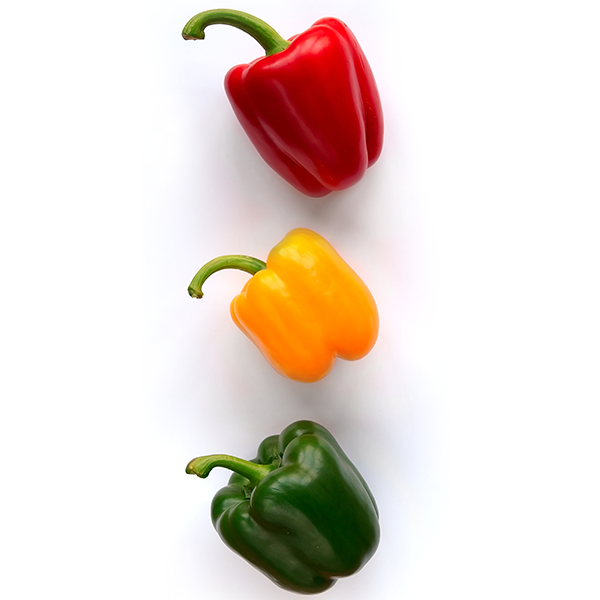
Bell peppers, whether they be green, red or yellow, are a staple in many homes. Encourage the purchase of organic bell peppers in your department to boost the bottom line as their sales are growing. Don’t miss the opportunity to capitalize on growing sales.
As bell peppers are a staple item in many households, they are a good place to start when encouraging consumers to purchase organic. Include peppers in an organic salad promotion with other organic salad vegetables. Include organic salad dressings in your promotion.
Try cross-promoting bell peppers with different organic dips. Create party trays that include all organic produce and include sliced bell peppers on the tray.
Consider displaying organic peppers next to their conventional counterparts in a display designed so the conventional and organic produce are separated. This allows consumers to find the organic product where they would normally look for it. Another option is to display organic bell peppers in a separate organics section, allowing consumers who are looking only for organics to find everything they need in one place. Try both options to see what works best in your department.
Offer a variety of colored peppers to create an attractive display and to appeal to consumers looking for more than just the traditional green bell pepper. Consider offering a three-pack of different-colored organic peppers.
Consider adding organic mini peppers to appeal to consumers looking for a way to use peppers as a snack.
Shipping
Organic bell peppers are available in a variety of pack sizes similar to conventional bell peppers, including 25- and 30-pound cartons. Organic stoplight packs (one red, one yellow and one green pepper) are often available in cartons of 10, 3-count packages. Organic mini bell peppers are often shipped in cartons of 12, 12-ounce bags.
Grades
U.S. fancy
U.S. No. 1
U.S. No. 2
Handling
Temperature: 45 to 50 F, 7.2 to 10 C
Relative humidity: 85-90%
Mist: lightly
Typical shelf life: 8 to 10 days
Ethylene-sensitive (Do not store or transport ethylene-sensitive items with commodities that produce ethylene.)
Odor producer (Do not store or transport odor-sensitive items with commodities that produce odors. Green peppers produce odors that will be absorbed by pineapples.)
Highly sensitive to freezing injury. (Likely to suffer injury by one light freezing.)
Susceptible to chilling injury (Damage sometimes is not apparent until produce is returned to a warmer temperature.)
When stacking containers in the back room, make sure to stack organic items at the top so residue from conventional produce doesn’t drip down onto the organic items.
Organic items can be stored side by side in the cooler as long as no product is touching and no residue can drip from the conventional onto the organic product.